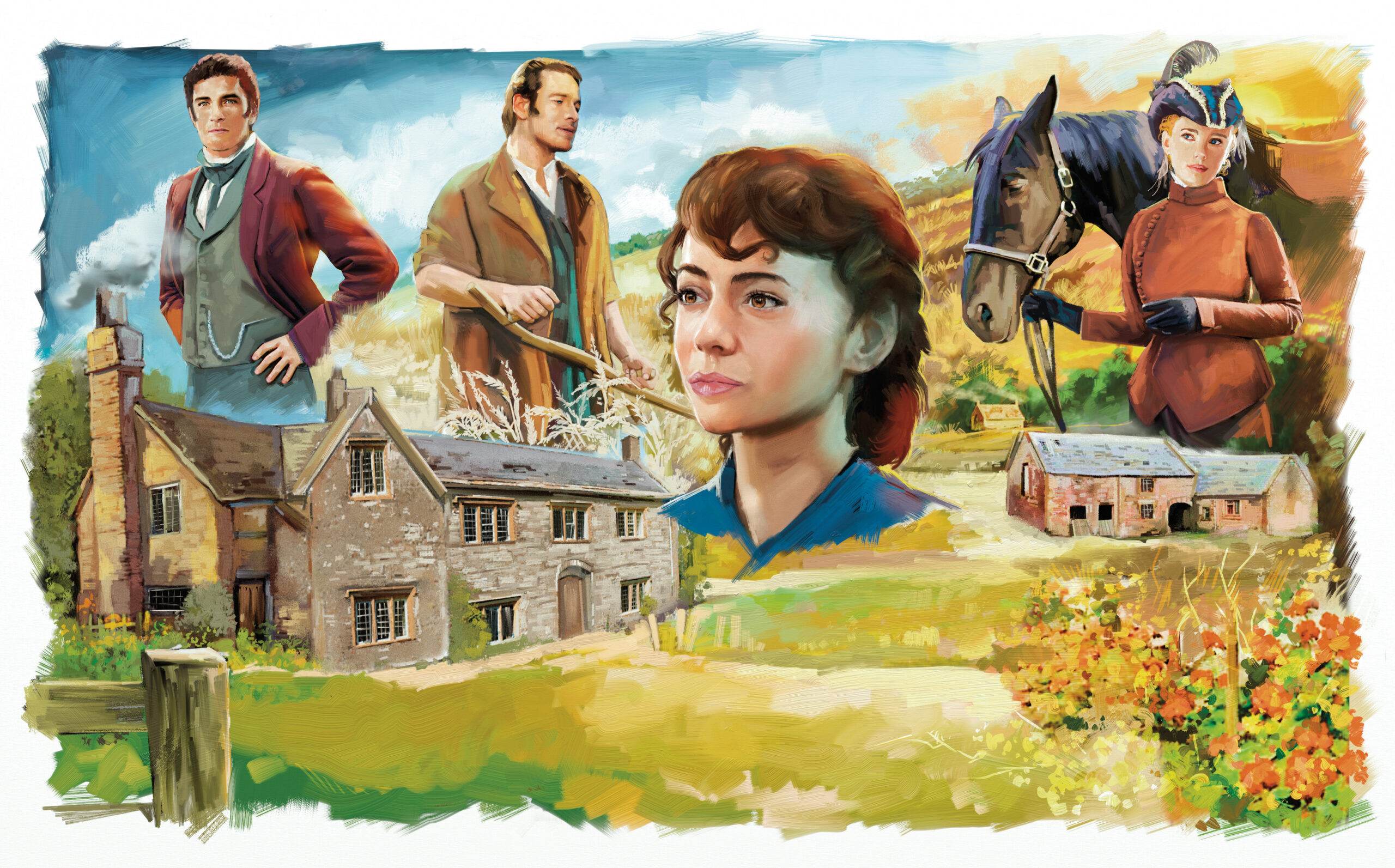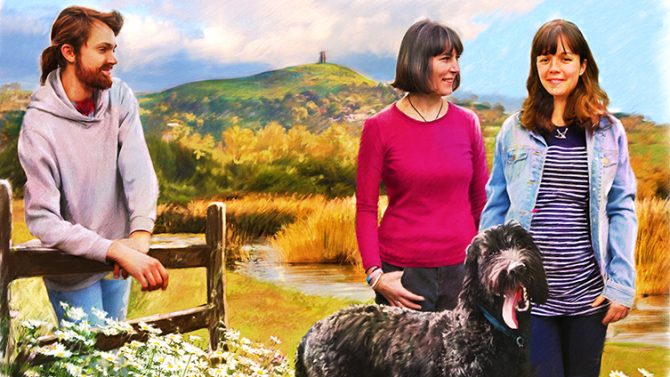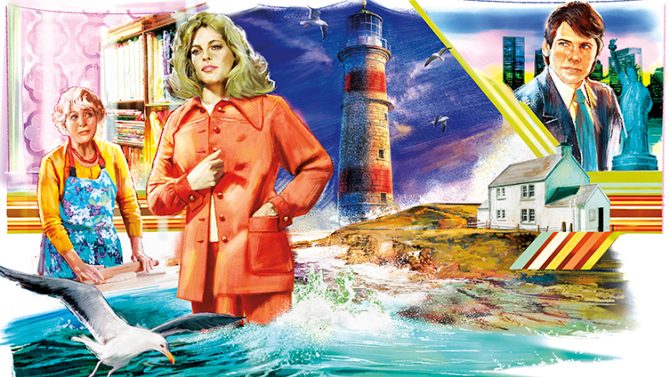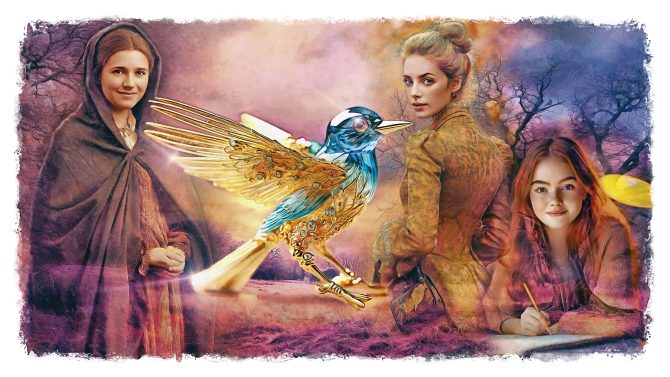About The Hollow Ground – Episode 19
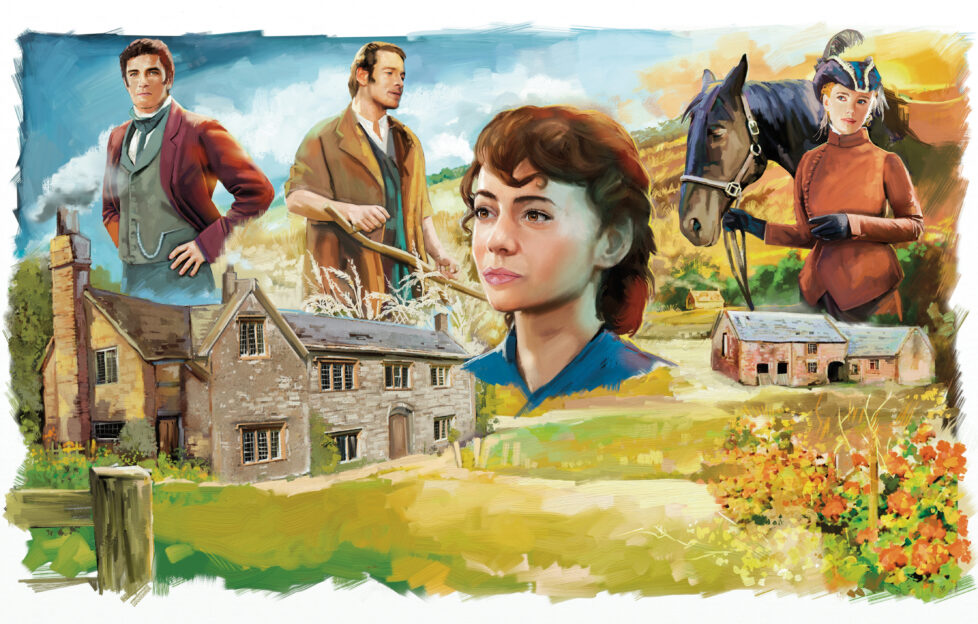
About The Hollow Ground by Pamela Kavanagh
« Previous Post- 1. About The Hollow Ground – Episode 01
- 1. About The Hollow Ground – Episode 19
Piers was heading for the Oak.
All that day, the memory of Nan Vessey riding off with Harrison in the trap had been pure torment.
He was no drinker and had reasons of his own for avoiding places where locals and travellers tended to congregate. Even the trips to the beast market at Shrewsbury brought a measure of unease.
Who might be there, on the watch for a runaway miscreant? For this was how his name would appear in some quarters.
Nonetheless, an hour or so over a sup of ale beckoned. Anything to erase that mental picture of Nan and Daniel Harrison driving off together so companionably.
The taproom of the Oak was crowded and thick with the fug of mucky boots and stale tobacco smoke.
Piers elbowed his way to the bar, acquired a tankard of ale and looked around to see who was present.
Over in a far corner, Shepherd Skelland and Logan Brassey were putting the world to rights with a bevy of other smock-clad farm-workers.
They sent Piers a nod of greeting, but did not beckon him to join them.
Piers returned the nod amicably. Becoming one of the crowd never did come easy. A fellow had to be prepared to be an outsider for as long as it took.
A movement behind him brought his attention. He looked round into a face he did not know.
“Tom Dewes,” the man introduced himself. “I were bailiff at Cross Lanes a bit back. I believe you’ve taken up residence at the cottage.”
“Aye, that’s so.”
Piers was in no mood for idle chat and was tempted to give the fellow short shrift, then decided against it.
No man liked to drink alone, and here was someone who might throw more light on the subject of Henry Vessey.
“Piers Merriman,” he said agreeably.
“How do, Merriman? Settled in, have you?”
“The cottage or the farm?”
“It amounts to the same, dunna it? Best thing I ever did, leaving Cross Lanes.”
“You weren’t happy?”
“Happy enough. The wife wunna, though. She found it lonesome, stuck on her own all day. She much prefers it at Vinewood. The gaffer, him’s built a terrace of housing for staff. It suits Aggie better.”
“Makes life more acceptable all round, then,” Piers said.
“You could say that. I could see the way the wind were blowing at Cross Lanes. Workers getting laid off, the farm going downhill. He had some fancy notions, Henry Vessey.”
Dewes broke off, as if regretting having gone so far. Piers wondered if there had been an altercation between this man and his employer.
“I were ready for a change. When the offer of a place at Vinewood came along I took it. He inna a bad boss, Edwin Harrison. Knows how to look after his workers, him does.”
Piers took in the fine cut of the man’s coat and the horse tethered outside, and deduced that the bailiff was not wrong in this respect.
Talk moved on to subjects common to both men: the effect the summer drought might have on the hay and corn harvest; the rising cost of cattle and horse fodder; the prospects for farming in the future.
Their tankards emptied, Piers spoke.
“About Henry Vessey?”
“Aye?” Dewes was cautious.
“He was known for his good horsemanship. Did it strike you as unusual that he met with a fatal riding accident?”
“Why should it? ’Osses will be ’osses. Happen the animal was spooked and threw the gaffer. Anyone can take a toss. Vessey were no more immune than the next man.”
Tom Dewes would say no more. Piers did his best to encourage him to talk, with no success. He made a bid for retreat.
He was on his way out of the inn when another man entered, colliding with Piers. He was short and had a crooked, leathery face. He made no attempt at apology, and Piers continued on his way.
What made him glance back over his shoulder he had no idea, but he saw the man had made straight for the person in whose company Piers had just spent the last hour.
Tom Dewes had propped himself against the bar and was passing the time of day with the publican, and looked none too pleased at the intrusion.
The man’s presence seemed significant and Piers wondered who he was. A groom, perhaps, by his drabbet smock and gabardine trousers.
On the cobbled forecourts he paused before heading back up the steep, winding road to Harthill. Far from restoring his good humour, the evening had turned out to be a damp squib.
Should he cut his losses – and with the chance of promotion in the offing, these could be considerable – and move on?
No, he thought. He had promised to set the farm to rights and he would see it through – unless, of course, a move was forced upon him.
